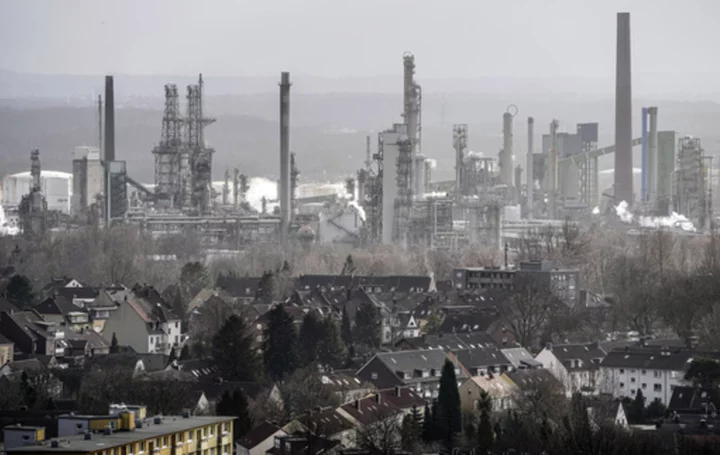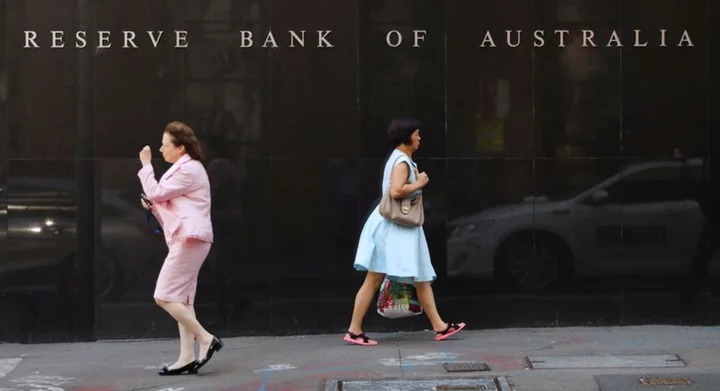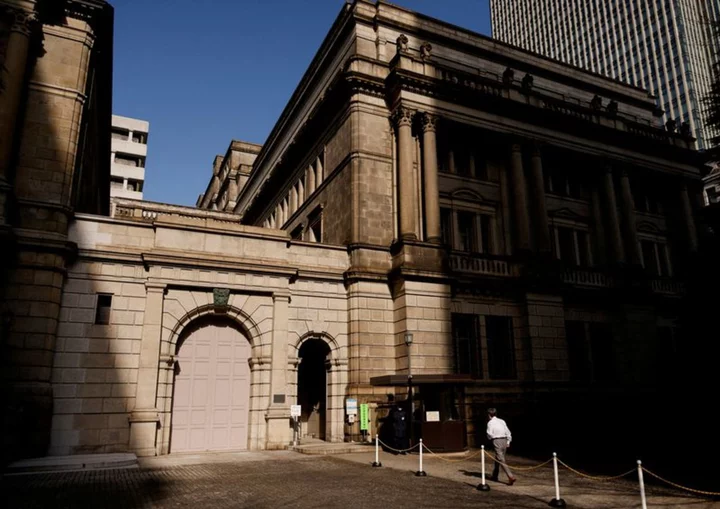FRANKFURT, Germany (AP) — The European Union's executive body raised its economic growth forecast, saying Europe had dodged a winter recession that was feared amid an energy crisis but warning that stubbornly high inflation is likely to keep hurting the economy by sapping people's ability to spend.
The outlook for the 20 countries using the euro currency improved to growth of 1.1% this year from 0.9% in February's predictions, the European Commission said in its spring forecast Monday.
Europe had faced expectations of a winter energy catastrophe after Russia cut off most of its supply of natural gas to the continent amid the war in Ukraine. Prices surged to record highs for gas needed to heat homes, generate electricity and power factories — fueling painful spikes in consumer prices.
A mad scramble to line up new sources of natural gas — through more expensive supplies of liquefied gas coming by ship — along with mild weather and reduced use helped Europe get through the winter without a major energy crisis.
“The European economy continues to show resilience in a challenging global context,” European Commissioner for Economy Paolo Gentiloni said at a news conference. “Declining energy prices, diversification of energy supply and reduced consumption have contained the adverse economic impact of Russia's war of aggression against Ukraine.”
“As lower energy prices continue to provide relief to households and firms budgets, the economic expansion is expected to continue in 2023 and pick up some pace in 2024,” he added.
The growth forecast for next year was raised to 1.6% from 1.5% in the earlier projection.
Officials cautioned, however, that inflation is persistently high, which erodes people’s purchasing power and weighs on growth. Consumer prices rose 7% in April from a year earlier, while the economy barely scraped out a 0.1% expansion in the first three months of the year.
There are also challenges from rising interest rates that the European Central Bank is using to try to return inflation to the bank's target of 2%.
Higher borrowing costs for consumers and businesses have been reducing the availability of loans for home purchases or business investment and shrinking demand for loans.
An additional challenge comes from recent turmoil mostly affecting banks in the U.S., where three financial institutions have collapsed in recent months.
While European officials say their banks are not directly exposed to the U.S. troubles, increased scrutiny of bank finances from regulators and shareholders may make banks even more reluctant to lend.
Banks are the chief sources of financing for companies in Europe, in contrast to the U.S. where financial markets supply the bulk of credit.









